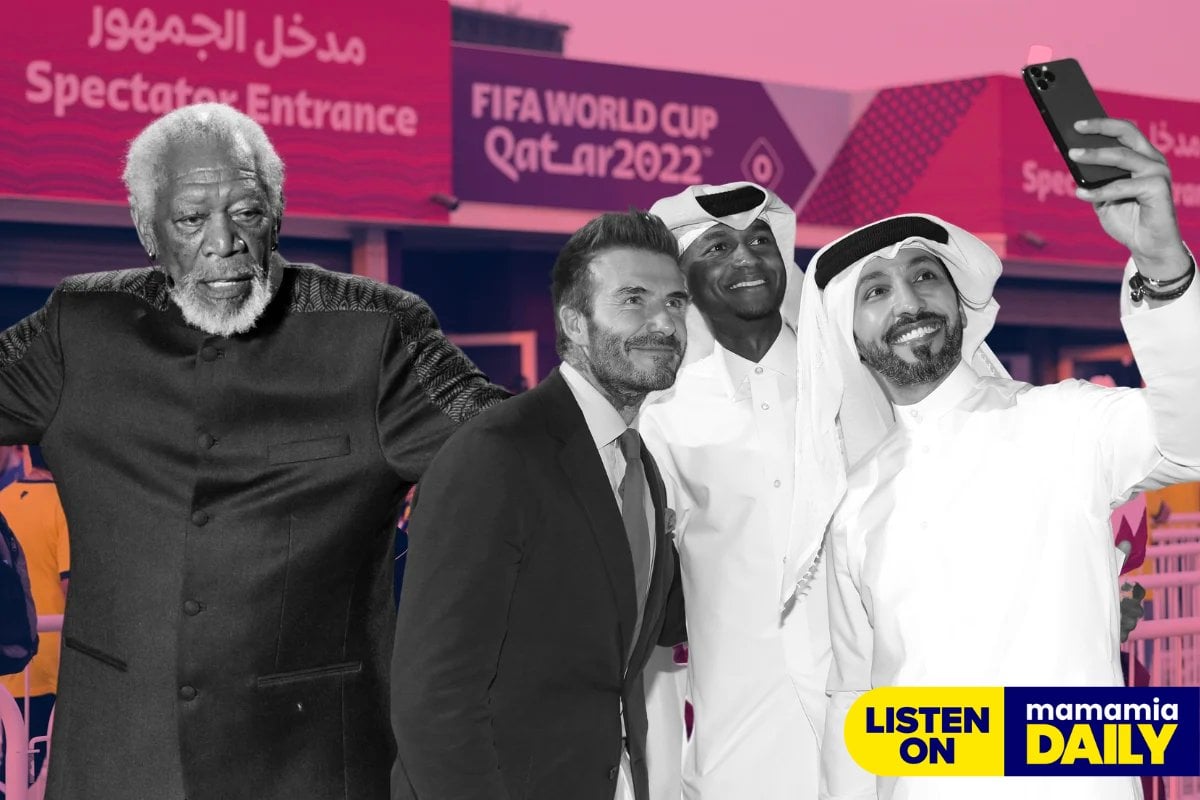
Listen to this story being read by Isabella Ross, here.
The FIFA World Cup is officially underway. It's the world's biggest soccer event, and for the first time it's being hosted in the Middle East – Qatar to be exact.
Qatar won the rights to host the 2022 FIFA World Cup back in 2010.
But the problem is this: there's a long list of serious human rights atrocities associated with Qatar.
Firstly, it's illegal to be gay in Qatar – and it's considered a punishable offense. Just last month, a human rights campaigner Peter Tatchell was stopped by police in Qatar while staging a protest against the Gulf state's criminalisation of LGBTQI+ people. Tatchell protested outside the National Museum of Qatar in the capital, Doha, and was carrying a sign which had the hashtag #QatarAntiGay.
Many LGBTQIA+ fans have said they no longer feel safe attending the World Cup – because not only would they not be able to share a room with their same-sex partner, but they could also face punishment and arrest.
And in the last day, FIFA had to outlaw the 'One Love' armbands that several football captains were wearing in support of the gay community – a decision likely enforced by Qatari government.
Another big issue is that thousands of migrant workers have allegedly died throughout the past decade building the infrastructure for the World Cup in unsafe conditions. This news was brought to light in a report by World Amnesty, which findings contrast to the official deaths released by Qatar officials.




























































































